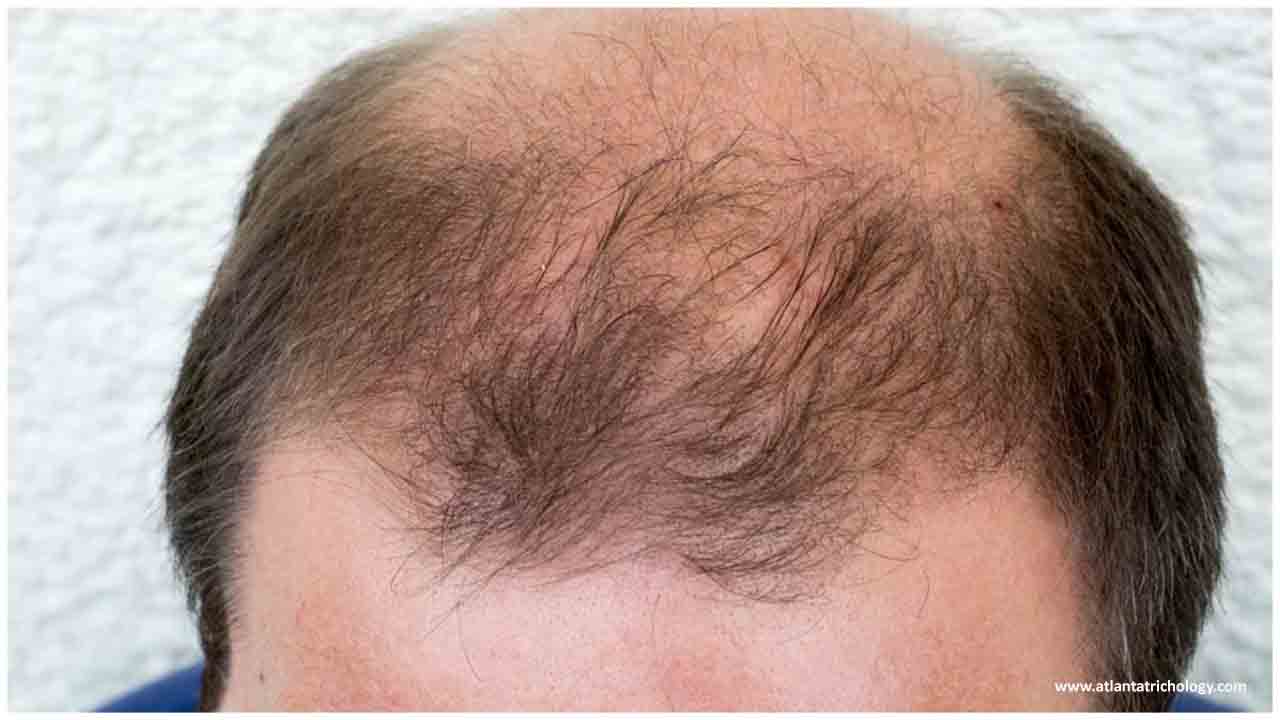We all have someone in our family who has an old age uncle with a bald patch. It is a very common thing to expect male baldness. But Alopecia is a medical condition that makes you lose spots of hair on your scalp. This condition is seen in both males and females And since September is Alopecia Awareness month we would like to create awareness around it.
Male pattern baldness refers to a loss of hair on the scalp in men. It happens as hormone levels change over a man’s lifetime, and especially in the later years.
It is thought to affect 50 million men in the United States, and half of all men by the age of 50 years. Although a natural part of the aging process for millions of men, hair loss can be psychologically distressing. Sudden or unexpected hair loss can sometimes indicate a more serious health condition that may need medical attention.
Here are some central issues about male pattern baldness. More detail is in the fundamental article.
Male pattern baldness, or androgenetic alopecia, regularly happens further down the road because of changing hormone levels.
Going bald can be mentally upsetting for men, and they may look for an assortment of medicines.
Different reasons for going bald incorporate dietary inadequacies, contaminations, and some mental conditions.
Medicines incorporate meds, laser and light treatments, and hair transplantation.
Causes
Men regularly lose their hair when three primary elements collaborate: hereditary qualities, age, and hormones. Otherwise called androgenetic alopecia, male-pattern baldness occurs as hormone levels change through the span of a man's life. Hereditary factors additionally influence the probability of male-pattern baldness. These elements add to the steady shrinkage of the minuscule depressions in the skin at the base of hairs, known as scalp hair follicles. Hair becomes dynamically shorter and better until no new hairs develop. Most white men build up some level of baldness, as indicated by their age and hereditary cosmetics. Male pattern baldness influences up to half of all white men by the age of 50 years and up to 80 percent of men in similar groups by the age of 70 years. Other ethnic gatherings, for example, Chinese and Japanese, are less influenced. Men with all the more first-and second-degree family members who lose their hair have a higher possibility of losing hair themselves.Seeing a specialist
I'm a student of Neutregenomics and which has made me understand that the balding gene is there in ones hereditary and can be carried forward. As per Genetics Home Reference, balding in men has been connected to prostate malignant growth, diabetes, weight, and hypertension, or hypertension.
It can happen as a response to push or after sickness or significant medical procedure, or as a symptom of certain drugs, for example, anticoagulants, or blood thinners, and nutrient An enhancements.
Balding can likewise demonstrate a wellbeing condition, for example, lupus, a parasitic disease, or a thyroid issue.
Other potential causes include:
Iron deficiency Excess Vitamin A, potentially because of retinoid drugs Extreme chronic disease, for example, diabetes or lupus Ailing health or Malnutrition Utilization of anticoagulants, or blood thinners Telogen emanation, an aggravation of the hair development cycleVarious hereditary changes have been connected to male pattern baldness, yet just one has been affirmed by research, the androgen receptor (AR) quality.
Another exploration has proposed that an unusual amount of a protein called prostaglandin D2 in the scalps of certain men could connect to balding.
Any individual who is worried that balding might be a side effect of a medical issue should see a specialist.
TreatmentMany men see hair loss as a natural part of growing older, and they do not perceive the need for treatment. However, hair loss can trigger negative psychological effects, such as low self-esteem. In some, it can contribute to depression. Some treatments are available that may help reduce hair loss. Improving poor dietary habits are also important to make sure you have balanced meals, with doses of Iron and other vitamins.
Medication
The U.S. Food and Drug Administration (FDA) has approved two types of drug treatment for male pattern baldness. But would advise that visiting a doctor is far better than googling about the condition.
The majority of the time the situation can get better when you visit the doctor sooner.

 A quick brief about Alopecia in Male and how can you understand more about it.
A quick brief about Alopecia in Male and how can you understand more about it.









.jpeg)

















.jpg)


